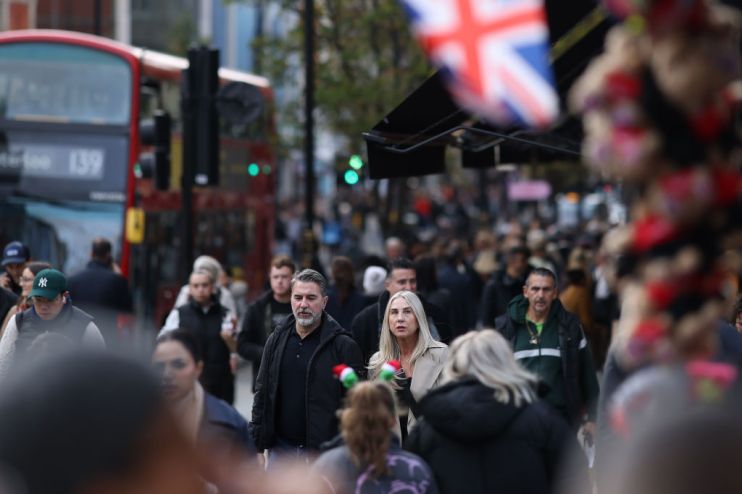UK recession to officially begin this winter, City economists predict

The UK’s recession will officially begin this winter and is likely to last for most of next year, a closely watched survey out today suggests.
S&P Global and the Chartered Institute of Procurement and Supply’s (CIPS) final purchasing managers’ index (PMI) measuring private sector activity in November was unchanged at 48.2, the lowest number since January 2021 when the UK was in the constrained by tough pandemic lockdowns.
The reading was below analysts’ expectations but held steady from an earlier estimate. The services PMI was unchanged at 48.8. Services firms generate about two thirds of UK GDP.
The figure prompted experts to predict the forewarned recession will start during the final weeks of this year.
A recession is typically defined as two consecutive quarters of contraction. The UK economy shrank 0.2 per cent over the summer.
PMI has slid this year

Britain’s PMI has now been below the 50 point threshold that separates growth and contraction for four months now, indicating consumers and businesses started cutting spending during the summer when the cost of living crisis gathered pace.
Chris Williamson, chief business economist at S&P Global Market Intelligence, said Britain is now in the teeth of the worst economic slowdown outside the Covid-19 pandemic since the financial crisis in 2008.
The economy is being spiked by the worst inflation crunch in 41 years, with prices rising 11.1 per cent over the year to October.
Pay is failing to keep pace with inflation, putting households on track for the biggest living standards shock on record. The Office for Budget Responsibility reckons real incomes will fall 7.1 per cent over the next two years.
That living standards squeeze is expected to drive a spending slowdown, keeping the UK in recession for at least a year. However, experts think the amount of GDP lost during the slump will be small compared to past recessions.
Businesses are being squeezed by soaring energy costs, forcing them to scale back unprofitable activity.
Gabriella Dickens, senior UK economist at consultancy Pantheon Macroeconomics, thinks businesses will have to shed workers to offset weaker spending.
“Firms will move decisively to reduce employment next year, as they are forced to consolidate costs in the face of higher financing costs and weaker demand,” she said.
The pound slumped 0.34 per cent against the US dollar on the news. The FTSE 100 climbed 0.24 per cent.